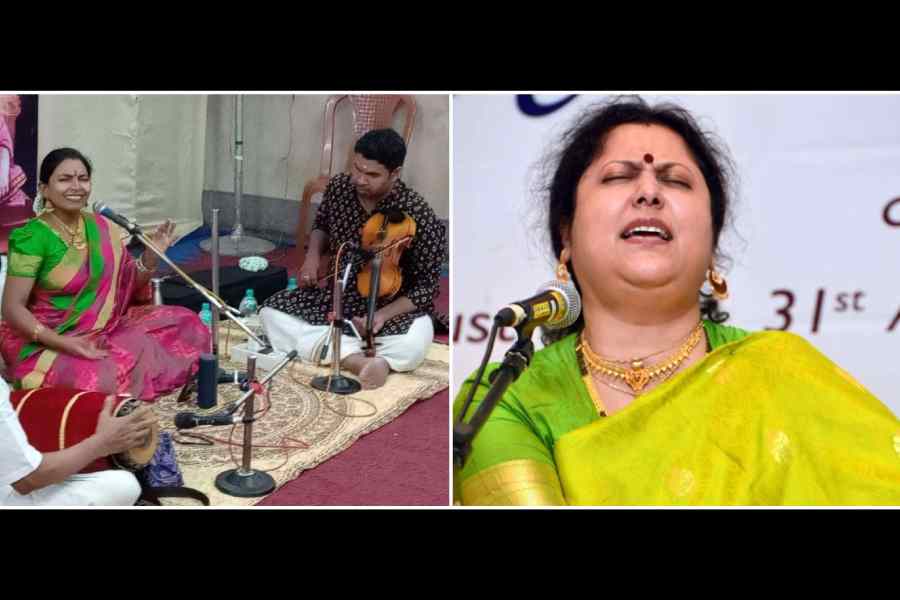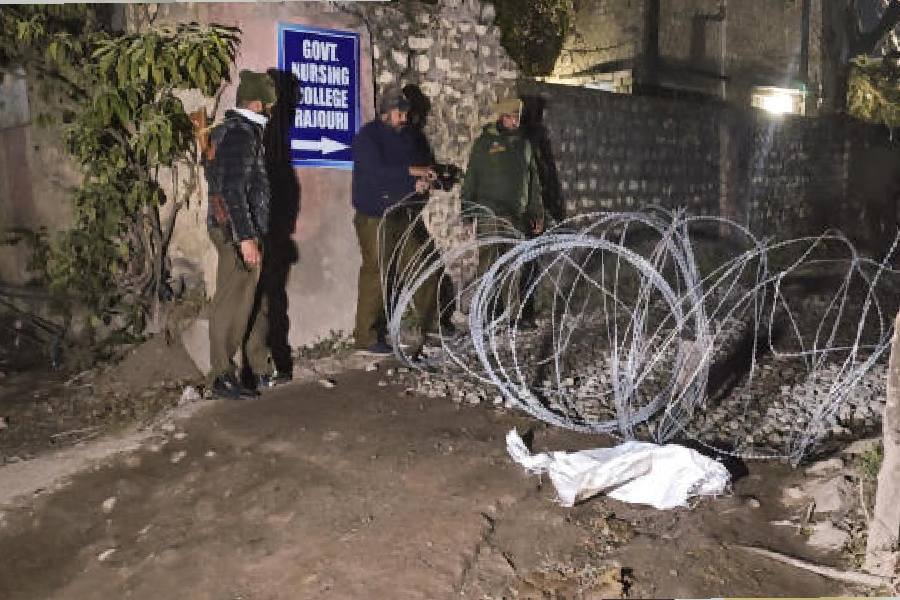Like every other year, Sringeri Sankara Hall organised an event featuring classical Indian music and dance as part of the Sharada Navaratri festival. It commenced with a violin duet by S. Ranganathan and Gayatri Krishnamurthy, senior disciples of Sri Guruguha Gana Vidyalaya, Calcutta, accompanied by S. Venkatraman on the mridangam. They played a wonderful Tamil composition in Raga Kalyani and a composition by Muthuswami Dikshitar in Raga Mohanam. B. Karthickeyan, along with S. Ranganathan on the violin and R. Srinivasan on the mridangam, sang a composition by Thyagaraja in Raga Charukeshi and other songs in Raga Purvikalyani. His ragamalika was pleasing. Rakshita Ramesh played the veena with S. Venkatraman on the mridangam, presenting a beautiful Reethigowla Raga. Her control over the laya in the swara pattern was stellar. The tanam in Raga Vachaspati was perfectly executed in madhyam and drut, followed by a lovely raga delineation and a kriti. She played a wonderful tani and thillana in Raga Mand before the mandatory Mangalam ragam.
The senior vocalist, Brindha Manickavasakan (picture, left), presented Raga Bhairavi Swarajati and a composition by Muthuswami Dikshitar in Kamboji ragam. She also sang a kriti by Thyagaraja in Kannada. Anand R. Jayaram’s vocal recital with Nataraj Radhakrishnan on the violin and Shankar Narayanaswami on the mridangam flourished in the ragam tanam pallavi in Raga Mohanam. Compositions in the ragas, Sumadyuti and Simharavam, were also presented with pleasing kalpana swaras. A duet of Saraswati veena by C. Charulatha and mandolin by Vishwas Hari was a fusion of the ancient with the modern. Shankar Narayanaswami and P.V. Sairam supported them on the mridangam and the ghatam, respectively. They also played Raga Amrutavarshini and concluded with a thillana. The vocalist, Shreya Kolathaya, from Mangalore and Esha Banerjee and her dance troupe brought the nine-day festival to a perfect conclusion.
Barkha Bahaar was a two-day celebration of the monsoon by young exponents of Purab Anga Gayaki and was structured and supervised by the music enthusiast, Meena Banerjee. Presented by the Calcutta Performing Arts Foundation, supported by the Bharatiya Vidya Bhavan and staged at Chowdhury House recently, this off-beat event also included a dialogue session.
As the final artist of the event, Abanti Bhattacharya (picture, right), a disciple of Dalia Raut, enchanted with her soulful “Piya to maanat nahi” (Raga Kafi) and the pathos-filled “Tarape bin baalam”. In the final slot of the first evening, the vocalist-sitarist duo, Debapriya-Samanway, took an aesthetic approach to a complex and rare tappa in Raga Purvi. Their emotive jhoola (Raga Megh) was truly melodious. Jhumpa Sarkar’s thumri in Raga Pilu with the sweet appeal of the words, “Saiyan nahi aaye”, was followed by a swinging jhoola. Santa Kundu’s thumri in Raga Kafi suited her soft voice; she also sang a Mirzapuri kajri with the same ease. Bishnupriya Chakrabarty chose to sing a sohar — a ritualistic song sung at childbirth — set to Raga Shivranjani and deepchandi taal. Dipanjana Bose Chanda’s rendition of a thumri in Raga Desh and a rare jhoola set to rupak was delightful, as was Madhumita Chattopadhyay’s presentation.
The young and talented students of this specialised genre, Deblina Ray, Sagnik Sen, Moupali Chowdhury, Amrita Dutta and Ritisha Mukherjee, sailed through this occasion with maturity and sincerity. The second day’s afternoon session opened with a dialogue on the “Evolution of Thumri in Bengal” moderated by Supriyo Dutta. Eminent participants like Dalia Raut, Manasi Majumdar, Suranjana Bose, Tapasi Ghosh and Anjan Majumdar threw light on the various aspects of Purab Anga Gayaki. The session was thoroughly enjoyable.











